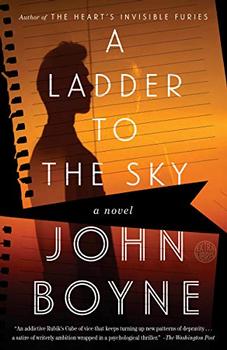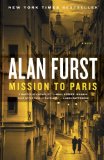Summary | Excerpt | Reviews | Beyond the book | Read-Alikes | Genres & Themes | Author Bio

The Serial Killer of Nazi-Occupied Paris
by David KingDavid King's engrossing and atmospheric examination of French mass murderer and physician Marcel Petiot's life is true-crime noir at its best. Always a cruel and crooked opportunist, Petiot develops into a rapacious executioner in the dark, desperate, and violent world of Nazi-occupied France.
King deftly establishes this world with many fascinating digressions, including a brief look at the development of existentialism, and he implies that the Paris in which Jean-Paul Sartre's No Exit was written was the perfect killing ground for the bold, amoral, brilliant, selfish (and possibly insane) Marcel Petiot.
He immerses the reader in horror on page one: "The smoke had begun five days before, but now, in the unusually warm weather, it was getting worse. In the air was a nauseating smell described variously as burnt caramel, burnt rubber, or a burnt roast of poor quality." Police break into the smoky building on rue La Sueur and follow the revolting smell of a human hand burning in a basement stove: "Arms and legs had been strewn around in parts. A split torso and two other skulls lay on the floor. The stench of scorched and decomposing flesh was overpowering."
Commissaire Georges-Victor Massu (who is said to be an inspiration for Georges Simenon's Inspector Maigret) is called, and more searches reveal a jumble of fine art, furniture, and bones. They discover outbuildings that house medical supplies and an office, and a mysterious triangular room, secured with a chain and padlock.
"There were no windows or furniture, only two unshaded lightbulbs and a plain metal cot. Attached near the corners of each wall, about one meter from the ceiling, were a number of hooks."
A false door and bell complete the strange room, along with a wallpapered-over viewing lens. Beyond, police find a pit containing, "a revolting mix of quicklime and decomposing bodies of varying stages - the dumping ground of a veritable slaughterhouse."
King traces Massu's fascinating investigation: his expert interrogations of Petiot's family and associates, French underworld figures, and patients of the "good doctor"; the search and eventual apprehension of Petiot; and the chaotic, dramatic trial (which includes a demonstration of a custom-made hat that is a precursor to Johnnie Cochran's famous, "If the glove don't fit, acquit" moment in the O.J. Simpson murder trial). In conclusion, King presents his own persuasive theories about Petiot's method of killing his victims and the real function of the windowless triangular room, and he leads the reader to interesting questions he must answer for himself: Must we be insane to be evil? Or, as a psychologist who examined Petiot argues, does a "lack of moral education... [allow us] to develop a taste for evil"? Or does the world we live in encourage us to devalue human life?
"...Indeed, the last five years of world war had desensitized many people who had lived through the Holocaust, the ferocious fire-bombing raids, and an array of horrors that left between fifty and sixty million people dead. One of the trial's low points was when [prosecutor] Dupin proposed that 'human life is sacred' and the audience laughed."
Though Petiot never fully reveals his motives, his methods, or the extent of his crimes, King succeeds in crafting a satisfyingly complete account of Petiot's life and deeds in Death in the City of Light.
![]() This review was originally published in The BookBrowse Review in October 2011, and has been updated for the
June 2012 edition.
Click here to go to this issue.
This review was originally published in The BookBrowse Review in October 2011, and has been updated for the
June 2012 edition.
Click here to go to this issue.

If you liked Death in the City of Light, try these:

by John Boyne
Published 2019
A seductive, unputdownable psychodrama following one brilliant, ruthless man who will stop at nothing in his pursuit of success.

by Alan Furst
Published 2013
From Alan Furst, the bestselling author, often praised as the best spy novelist ever, comes a novel that's truly hard to put down. Mission to Paris includes beautifully drawn scenes of romance and intimacy, and the novel is alive with extraordinary characters.
No matter how cynical you get, it is impossible to keep up
Click Here to find out who said this, as well as discovering other famous literary quotes!
Your guide toexceptional books
BookBrowse seeks out and recommends the best in contemporary fiction and nonfiction—books that not only engage and entertain but also deepen our understanding of ourselves and the world around us.